Bruce Willis Sighting In Public After Dementia Diagnosis
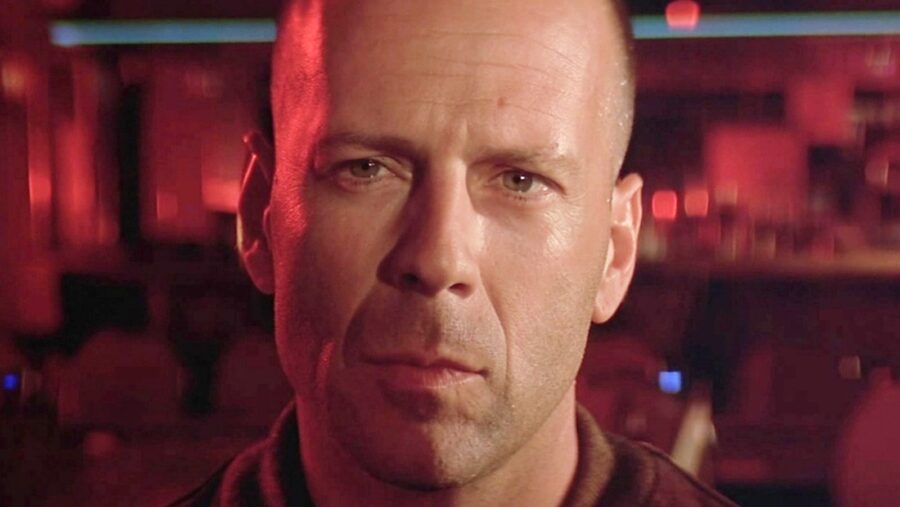
Fans of Bruce Willis will be interested to know that, amidst his ongoing battle with dementia, the Hollywood icon was recently spotted in Los Angeles. The renowned 68-year-old actor—perhaps best known for his roles in the Die Hard franchise—was photographed seated in the passenger seat of his vehicle. As the actor struggles with Frontotemporal dementia (FTD), glimpses of the beloved star have become increasingly rare.
Bruce Willis Spotted In LA
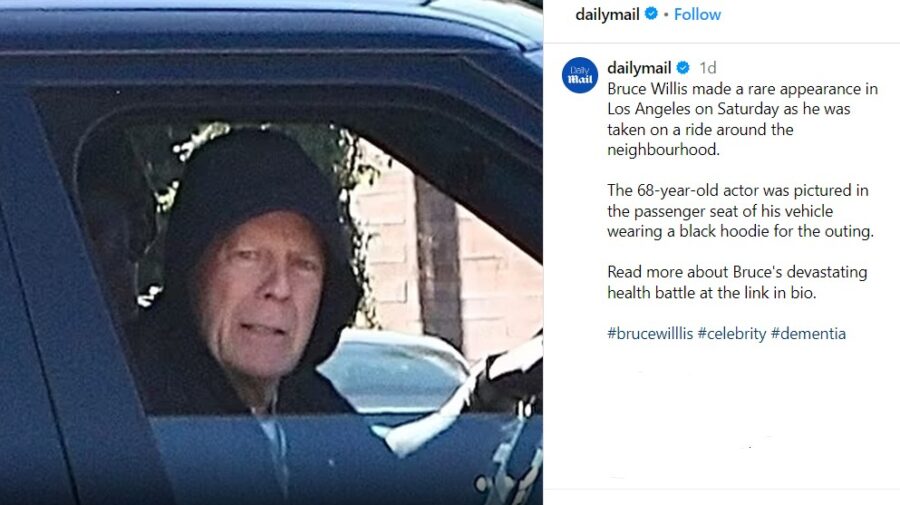
The image, which you can see above, comes courtesy of Daily Mail‘s Instagram account.
Fans will remember Willis’s family announcing last year that the actor had been diagnosed with aphasia, a condition significantly affecting cognitive abilities. Bruce Willis’s diagnosis motivated his painful decision to retire from acting. Then, earlier this year, his health situation altered as his condition escalated to Fontotemporal dementia. This rare, aggressive version of dementia determines behavioral, personality, and linguistic abilities.
Bruce Willis’ Current Condition
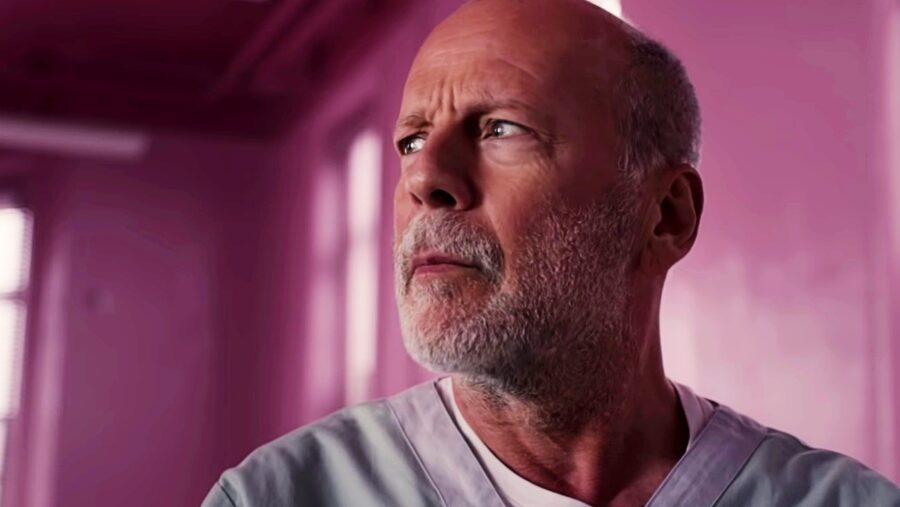
Still, the actor and household name exceeds his illness; like all who live with a chronic disease, he is not his diagnosis. And those who know Willis firmly articulate the actor still retains and exhibits his own essence. For example, Glenn Gordon Caron, the creative force behind the television show Moonlighting—an eighties sitcom hugely boosting the career and fame of Bruce Willis—shared sobering yet encouraging insights.
Yes, Willis’s linguistic skills have depreciated, Gordon Caron conveyed, particularly regarding the actor’s previously enormous appetite for reading. But the Moonlighting writer and director affirmed that Willis’s identity—the core of who he is—remains intact and recognizable.
A Solid Support System
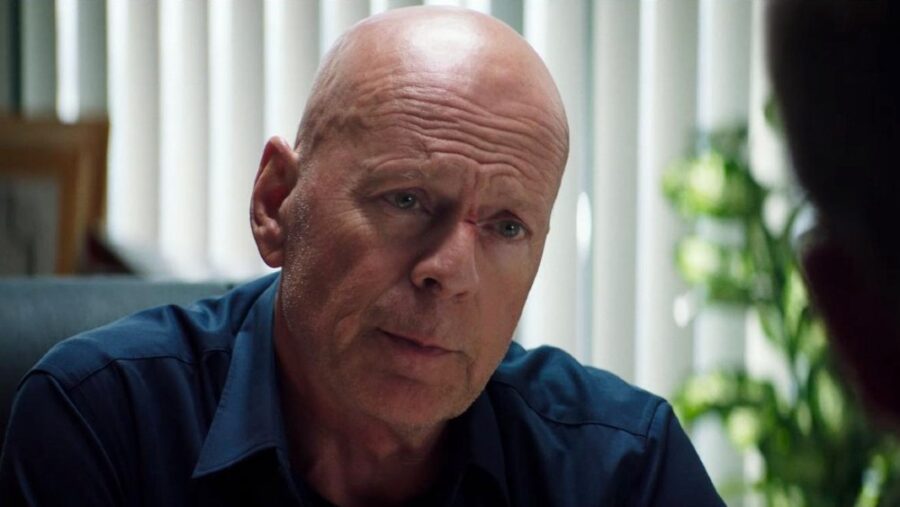
For the actor, familial support represents his pillar in the face of his disease. His family includes his wife, Emma Heming, and his five daughters—all of whom have constituted the foundation of his support system. Heming, for her part, voiced the challenges of being a caregiver for a loved one navigating as debilitating a condition as Fontotemporal dementia.
Bruce Willis’s wife also communicated how caring for her loved one involves wrestling with guilt over her family’s access to resources and capabilities that other families might not have. This latter, candid perspective sheds light on a lesser-seen aspect of the caregiving process.
Thankfully, since the action star’s diagnosis, the outpourings of support and positivity have been immense and continual. Truly, the actor and his family have benefited from waves of support and sympathy from fans and Hollywood as a whole. It makes sense if only given the illustrious career emblazoned by this veritable icon of the silver screen.
Bruce Willis And Die Hard Fame
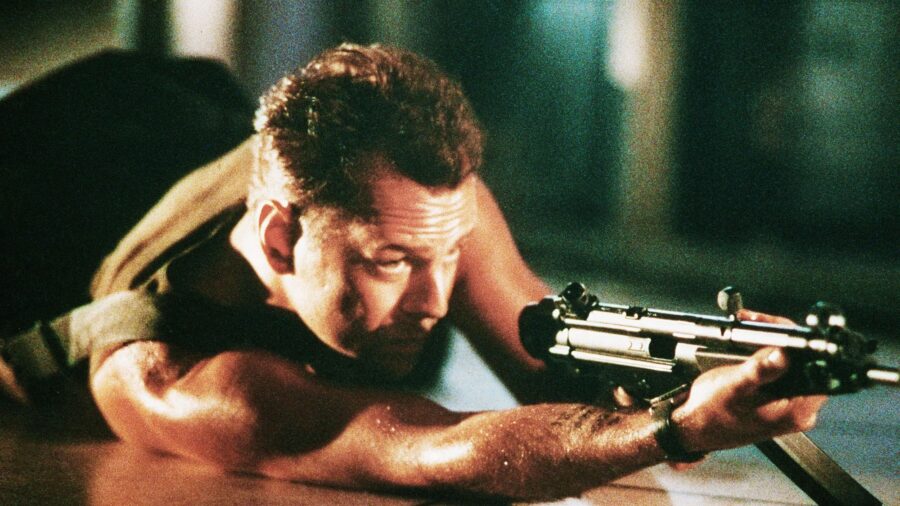
Bruce Willis’s major film breakthrough came with the 1988 action thriller Die Hard, in which he portrayed John McClane, the gritty, no-nonsense NYC cop trapped in a high-rise building hijacked by terrorists. The movie’s sizable success spawned a franchise. Also, the actor’s knack for delivering witty one-liners—amidst tense action sequences—evolved into a signature of his performances.
Willis continued to flex impressive dramatic versatility, whether in films involving legitimately nuanced acting like The Six Sense and Pulp Fiction, or innovative hits such as RED and Looper. Bruce Willis would revisit John McClane in several sequels to the original Die Hard.
More Than 6 Million Americans Diagnosed With Dementia
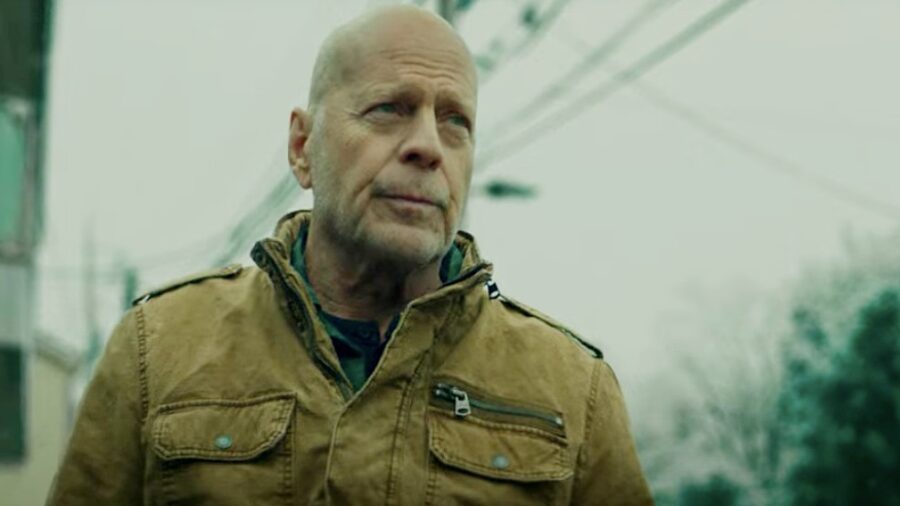
The actor’s journey, from his storied career to ongoing health issues, reminds audiences of the seriousness of dementia, as well as the strength, support, and goodness represented by family.












